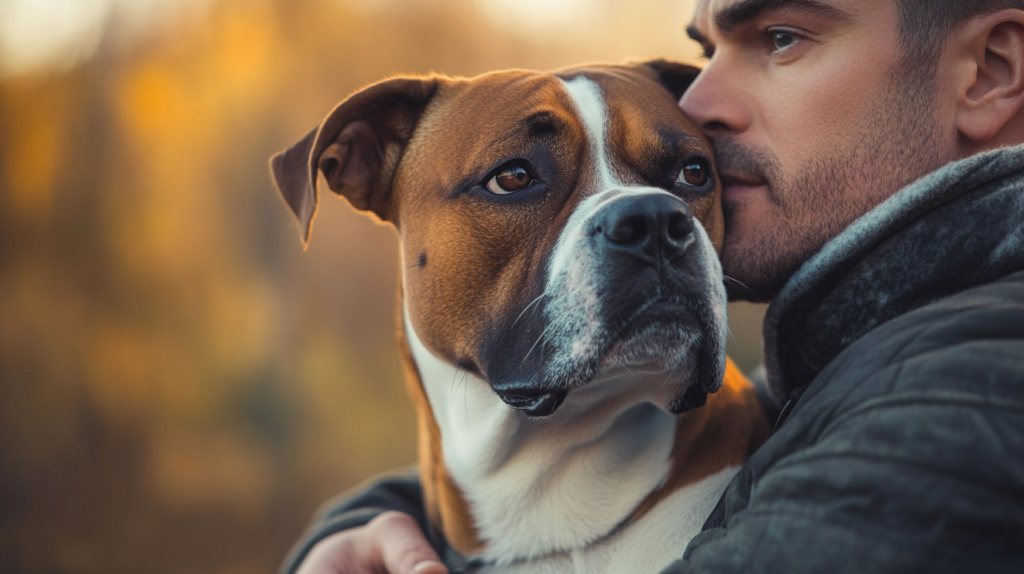Boxer Personality: Everything You Need to Know
Boxer dogs are a bundle of joy wrapped in a muscular frame, known for their playful spirit and affectionate nature. With their origins tracing back to late 19th century Germany, Boxers have evolved from hunting companions to beloved family pets. Their charming personalities and loyal demeanor make them one of the most popular breeds in the United States.
Before welcoming a Boxer into your home, it’s essential to grasp their unique temperament and personality traits. Understanding these characteristics can lead to a harmonious relationship between you and your new furry friend. Here are a few key points to consider:
- Loyal Companions: Boxers thrive on human interaction and companionship.
- Energetic Playmates: Their playful nature requires regular exercise and mental stimulation.
- Protective Instincts: Boxers often exhibit strong protective behaviors towards their families.
By familiarizing yourself with Boxer dog temperament and personality, you’re setting the stage for a loving, enriching bond that will bring endless joy to your household. Get ready for some tail-wagging fun! 🐾

Understanding Boxer Dog Temperament
Understanding Boxer dog temperament begins with recognizing that temperament encompasses the emotional characteristics and behavioral patterns of a dog. It plays a critical role in shaping how they interact with their environment and the people around them. With Boxers, this means a delightful blend of loyalty, playfulness, and protective instincts that makes them stand out as family companions.
Key Characteristics of Boxer Temperament
Boxers are renowned for their warm-hearted nature and vibrant personality. Here are some key traits that define their temperament:
- Loyalty: Boxers form strong bonds with their families. Their protective instincts ensure they will stand by your side through thick and thin.
- Playfulness: They possess an exuberant spirit, always ready for a game or a romp in the yard. This playful behavior is not just entertaining but also enriches family life.
- Protective Instincts: Boxers are natural guardians. Their watchful eye keeps loved ones safe, making them reliable protectors without being overly aggressive.
Playful and Energetic Behavior
The lively nature of Boxers is one of their most charming qualities. Their playful antics can bring joy to any household, making them the ultimate companions for active families.
Love for Playtime
Whether it’s chasing after a ball, tugging on a rope toy, or engaging in a spirited game of hide-and-seek, Boxers thrive on physical activity. This enthusiasm often leads to endearing moments that create lasting memories.
High Energy Level
With energy levels through the roof, it’s essential to provide Boxers with regular exercise. Daily walks, trips to the dog park, or play sessions help channel their exuberance positively.
To keep your Boxer happy and well-behaved:
- Regular Exercise: Aim for at least an hour of physical activity each day. This could include jogging, playing fetch, or agility training.
- Mental Stimulation: Incorporate puzzle toys or obedience training sessions to challenge their intellect and prevent boredom.
These practices not only help manage their energy but also strengthen the bond between you and your furry friend.
By understanding Boxer dog temperament, prospective owners can better appreciate what makes these dogs so special and prepare for the joyful journey ahead with their new companion.

Personality Traits of Boxers
Stubbornness and Training Challenges
Training a Boxer can be an exciting journey filled with learning moments. However, it also presents unique challenges due to their independent thinking and occasional stubbornness. Understanding these traits is essential for successful training.
1. Independent Thinkers
Boxers are known for their strong personalities. This independence means they may not always follow commands immediately or as expected. They often have their own ideas about what’s fun or interesting, which can lead to selective hearing when it comes to training cues.
2. Stubborn Streak
While this breed is intelligent, their stubbornness can surface during training sessions. Owners might find that their Boxer sometimes decides they’d rather chase a butterfly than sit on command. This behavior can be frustrating but is part of what makes Boxers so endearing!
To effectively train a Boxer and overcome these challenges, the use of positive reinforcement techniques is paramount:
- Motivation through Rewards: Treats, praise, and playtime serve as excellent motivators. When your Boxer successfully follows a command, rewarding them immediately reinforces the desired behavior. This creates a positive association with training.
- Engaging Training Sessions: Keeping training sessions short, fun, and engaging helps maintain your Boxer’s attention. Incorporating games like fetch or hide-and-seek can make the process enjoyable while teaching essential commands.
- Consistency is Key: Regular practice reinforces learning. Consistent commands and routines help your Boxer understand expectations. Using the same words and gestures for commands will aid in quicker comprehension.
When exploring Boxer personality traits, it’s vital to recognize their social nature too:
- Boxers thrive on human interaction and companionship. Their affectionate demeanor leads them to seek out closeness with family members.
- Engaging in socialization from an early age is crucial for developing well-rounded dogs. Introduce your Boxer to different environments, people, and other dogs to help them become confident companions.
Training a Boxer isn’t just about obedience; it’s about building a bond based on trust and understanding. By leveraging the right techniques and embracing their quirky personality traits, owners can transform potential training challenges into delightful experiences filled with growth and mutual respect.

Social Nature and Interaction with Humans
Boxers are known for their outgoing and friendly personality, which makes them great companions for humans. To build a strong bond with these loving dogs, it’s important to understand their unique traits.
Affectionate Behavior
Boxers show their love in many adorable ways, such as:
- Snuggling up to their owners.
- Following family members around the house, always wanting to be close by.
Intelligence and Stubbornness
Boxers are smart dogs, but they can also be a bit headstrong at times. This mix of qualities can make them both entertaining and sometimes challenging pets.

Differences Between Genders
When it comes to Boxers, there are some differences between males and females:
- Male Boxers tend to be more playful and energetic.
- Female Boxers often have a nurturing instinct and may take on a motherly role.
Understanding these differences can be helpful when training your Boxer, as certain techniques may work better depending on their gender.
Socialization Importance
It’s crucial to socialize Boxers from an early age so they grow up to be well-adjusted dogs. This means exposing them to different people, places, and other animals in a positive way.
By doing this, you’ll ensure that your Boxer knows how to behave around children and other pets. Proper socialization will also help prevent any fear or aggression issues later on.
A Boxer who has been properly socialized becomes more than just a pet; they become an essential part of the family. Their playful nature and affectionate personality bring happiness into our lives every day.

Are Boxers Good Family Dogs?
Interaction with Children
Boxers are often celebrated for their gentle nature around kids, making them a fantastic addition to any family. Their playful spirit and affectionate demeanor create an environment filled with laughter and joy. Here’s what makes Boxers a great choice if you have little ones at home:
- Gentle Giants: Despite their muscular build and energetic disposition, Boxers exhibit a surprisingly gentle approach when engaging with children. They are known to play carefully, avoiding roughness that could unintentionally harm younger family members. Their instinctual understanding of boundaries helps foster a safe play atmosphere.
- Protective Instincts: Boxers possess a natural protective streak that kicks in when they sense potential threats to their loved ones. This breed is known to be vigilant, making them excellent companions for children. They will not hesitate to alert their family if something seems amiss, providing peace of mind for parents.
- Social Butterflies: These dogs thrive on interaction and companionship. Boxers enjoy being part of the family dynamic and will often follow children around the house, joining in on various activities. Whether it’s fetching a ball or simply lounging during movie time, they relish every moment spent with their human siblings.
Guidelines for Safe Interactions
Creating a harmonious relationship between Boxers and children is vital for both parties’ enjoyment and safety. Follow these guidelines to ensure smooth interactions:
- Supervise Playtime: Always keep an eye on your Boxer’s interactions with children, especially younger ones. This ensures everyone is playing safely and allows you to intervene if needed.
- Teach Respect: Educate your children about respecting the dog’s space. Show them how to interact gently and avoid pulling tails or ears, which could lead to negative reactions from the dog.
- Encourage Positive Experiences: Introduce your Boxer to children gradually, allowing them to get acquainted at their own pace. Positive experiences help build trust and comfort between the two parties.
- Engage in Structured Play: Organize games where both your Boxer and kids can participate together, such as fetch or hide-and-seek with treats. Structured play fosters teamwork while giving everyone an outlet for energy.
- Training Together: Involve kids in training sessions with the Boxer using positive reinforcement methods like treats or praise. This not only strengthens their bond but also teaches children valuable lessons about responsibility and respect towards animals.
The combination of gentle behavior towards kids and protective instincts positions Boxers as ideal family companions. Their playful nature paired with proper training and supervision guarantees a joyful household filled with wagging tails and happy faces!

Socialization with Other Pets
Bringing a Boxer into a home with other pets can lead to a harmonious household, provided that socialization is handled properly from an early age. Here’s how to ensure your Boxer integrates seamlessly:
1. Proper Introduction
Start by introducing your Boxer to other pets gradually. Use neutral territory for the first encounter, allowing both parties to explore each other’s scents without direct contact. This approach reduces anxiety and establishes comfort.
2. Supervised Interactions
Always supervise initial play sessions. Boxers are energetic and may overwhelm smaller pets. Observing their interactions helps you manage any overly enthusiastic behavior promptly.
3. Behavioral Expectations
Teaching your Boxer appropriate play behavior is crucial. Encourage gentle play and discourage roughhousing that could intimidate smaller companions. Utilizing commands like “gentle” or “easy” can be effective.
4. Positive Reinforcement
Reward calm interactions with praise or treats. This reinforces good behavior and encourages your Boxer to associate positive experiences with their fellow pets.
Understanding the temperament traits of Boxers assists in evaluating their suitability as family companions, especially with children involved. Their playful nature often translates well into friendships, making them excellent additions for families aiming for joyful interactions with both kids and other pets.

Mental Stimulation Needs
Boxers are not just a bundle of energy; they are also intelligent dogs that require mental challenges to thrive. Understanding the significance of mental stimulation for Boxers can make a world of difference in their behavior and overall happiness.
Why Mental Stimulation Matters
- Prevents Boredom: Boxers can become bored quickly, leading to destructive behaviors. Engaging their minds helps keep them focused.
- Enhances Training: Regular mental challenges reinforce training commands and improve responsiveness.
- Encourages Problem Solving: Interactive toys or puzzle games stimulate their brains and encourage independent thinking.
Fun Ways to Provide Mental Stimulation
- Interactive Toys: Invest in toys that require problem-solving skills, like treat-dispensing puzzles.
- Training Sessions: Incorporate fun tricks and obedience exercises into daily routines.
- Hide and Seek: A playful game of hide-and-seek with family members can be both fun and mentally engaging.
- Obstacle Courses: Set up mini agility courses in your backyard to challenge their physical and mental abilities.
Understanding Boxer dog temperament and personality encompasses recognizing their need for mental stimulation. A well-stimulated Boxer is a happy, well-adjusted family member ready to share their playful spirit!

Conclusion
Understanding Boxer dog temperament and personality provides valuable insights for potential owners. These lovable companions offer a unique blend of traits that make them a delightful addition to any family:
- Loyalty and Affection: Boxers form strong bonds with their families, showering them with love and devotion.
- Playful Energy: Their exuberant nature invites endless fun, ensuring that playtime never gets dull.
- Protective Instincts: Boxers naturally become protectors of their loved ones, adding an extra layer of security.
Adopting a Boxer means welcoming a vibrant personality into your home. These dogs thrive on interaction and companionship, enriching family life in countless ways. Embrace the joy they bring and discover the heartwarming experiences waiting with your new furry friend. Each day will be filled with laughter, love, and unforgettable moments as you get to know the enchanting world of Boxer dogs.

FAQs (Frequently Asked Questions)
What is the temperament of Boxer dogs?
Boxer dogs are known for their playful, energetic, and loyal temperament. They exhibit protective instincts, making them excellent family pets. Understanding their unique traits is crucial before bringing one into your home.
Are Boxers good with children?
Yes, Boxers are generally good family dogs and interact well with children. They have a gentle nature around kids and possess protective instincts towards their family members, making them suitable companions for families.
What challenges might I face when training a Boxer?
Training a Boxer can be challenging due to their independent thinking and occasional stubbornness. It’s important to use positive reinforcement techniques to motivate them during training sessions.
How much exercise do Boxers need?
Boxers have high energy levels and require regular exercise and mental stimulation to keep them happy and well-behaved. Engaging in playtime and physical activities is essential for their overall well-being.
Can Boxers coexist with other pets?
With proper socialization from an early age, Boxers can coexist well with other pets. It’s important to introduce them properly and set behavioral expectations during playtime.
How do Boxers show affection towards their owners?
Boxers express affection through various behaviors such as cuddling, following their owners around, and seeking companionship. Their social nature makes them thrive on interaction with humans.






